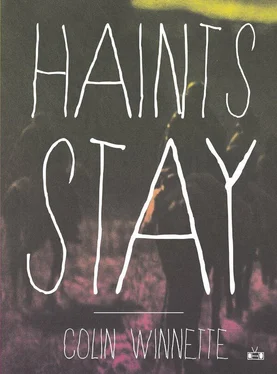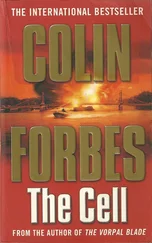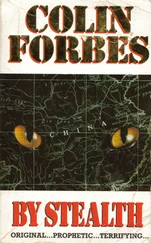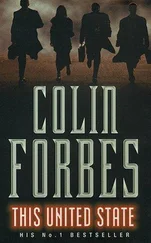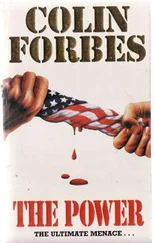They set out for the woods. Mary walked in front and Bird took up the rear. He carried several sacks on his shoulder, but dropped them again and again, claiming to have heard some sound or another. Birds launched from bushes and startled him into withdrawing his pistol. And every time, in order to do so, he had to drop the sacks.
“You’ll mush the bread,” said Mary. “You mustn’t drop them.”
“Carry a pistol then,” said Bird.
She took one, but did not like it and kept it unloaded.
“It is no good that way,” said Bird.
“I will not shoot off my foot,” said Mary, “carrying a loaded pistol in my belt and with several sacks in each arm. I’ll do things my way.”
They had to stop often. The sacks were too much for them. They kept the sun behind them. Mary insisted there were several towns founded at the far edge of the forest, directly opposite the desert towns. She had never traveled from one to the other, but John had, and had told her as much. At the far end of the woods would be either mountains or a town where they could eat proper food and find some safety. They walked for hours and hours, until the sun began to set. Mary did not like it one bit. Each step was painful and unpleasant and the bags kept slipping and swinging and making her gait unsteady. Bird was silent. He seemed neither comfortable nor struggling. She made the decision not to complain, though there was plenty to complain about.
“We’ve probably walked fifteen miles,” said Mary. “Maybe even twenty.”
“I don’t think so,” said Bird.
“How many do you think?”
“Five,” he said. “Or six. Hardly any. These bags are slowing everything down, and you keep stopping. So we’re crawling.”
On the far side of the woods, she would consider the possibility of leaving his side. She had thought about it long and hard and she did not want to marry him. She wanted to marry someone nicer and smarter. Bird was a violent nuisance. There was nothing to him that made her want to stay.
Bird insisted that they cover themselves when they slept. What the blankets could not reach, a sack would cover. The more they seemed to be a pile, the better. He slept with a bag of bread on his face. Mary found it funny and refused to do so. The treetops seemed miles above them. They tilted and groaned in the wind. She wanted to consider them as she prepared herself for sleep.
“If you are spotted,” said Bird, “we will have trouble.”
“I have a pistol,” she said.
“You will get us both tortured, eaten, or killed,” said Bird.
“That is silly,” she said.
She knew it wasn’t silly. She was carrying twice the sacks he was able to because the woods had shown him precisely what there was to be afraid of. Still, she had her pistol, and was intelligent and strong, and she would not be told over and over again by him what to do and how to feel. They were not a family and they were not in love. The moon was out, and it was full.
The next day went much as the previous. They walked and stopped and walked and stopped. They found a small stream and drank from it. They filled their canteens and a cup to carry each. Mary spotted a bird’s nest with a mother bird on its edge. She did not mention it to Bird.
“I like it out here,” said Mary. “It is pretty and I like the air.”
“You’re a fool to fall in love with it,” said Bird.
She did not answer. The mother bird lifted and sought food for the hidden young.
“You would do better to speak less,” said Mary.
“The same could be said of you,” said Bird.
“Perhaps,” she said. “But you are predictable and your position is clear. If you said nothing, I would nonetheless know how you felt about anything we might experience.”
“How do I feel about what you’ve just said?”
“You feel hurt, perhaps, but you also think that I am wrong.”
“I am not hurt.”
That night, Bird was less insistent about the sacks. He did not cover his face, and said nothing when Mary set her blanket down on the ground, rather than over her bright muddy white dress.
They were quiet for some time, but neither slept.
“Do you know any constellations?” said Mary.
“What are they?”
“The stars,” said Mary. “The shapes they make.”
“I see clusters,” said Bird, “flickering like a bunch of little fires on the hill.”
“Several points make an identifiable shape,” said Mary. “If you imagine a line drawn between them.”
“Like what?”
“I have only been told of them, and I do not know them,” said Mary. “So every time I look, they are different.”
“What are they now?”
“I am too tired to see anything other than a big soft bed for me to sleep in.”
“I will make money in town and we will buy a big soft bed,” said Bird.
Mary did not respond.
It was a cold night. The trees seemed not to break the wind at all. The mouths of the bread sacks slapped the earth and neither of their blankets would hold still. They hardly slept. They lay awake, staring up and trying to settle things. In the morning, they walked. They walked and walked and walked. They were losing their appetites, though they were working harder than they had for some time. When they were alone in the building with the kitchen, the amount of bread it took to fill them up was less and less with each day. Typically, they were still hungry after they were finished eating, but their stomachs could take no more of what it was they had to give it. In the woods, even that small amount seemed too much to the both of them. They forced it down, knowing they needed the energy to keep themselves on foot and moving forward. It was painful and Mary would throw up every now and then, after a meal. When she did, Bird made them stop and eat more. She knew he was right, that she needed to eat, but it was miserable and she hated him for it.
On the fourth day, the trees broke and they discovered a meadow. There were white flowers scattered throughout, and clusters of yellow ones. Bees crowded the blossoms. At the far end of the meadow, a thick brown moose vanished back into the woods.
On the fifth day, Bird spotted a fence. They had crossed the meadow and back into the trees. These trees were thinner, more spread apart. Finally, they gave way to a slope of rolling hills. It was on the edge of one of these hills that Bird saw the shadow of four parallel lines, breaking the light that was vanishing beyond it.
“On the other side of that hill,” said Bird, “we will find a house.”
Mary did not believe it. Or she was not willing to let herself believe it. That this early on, they would discover a home, a fireplace, a matching set of chairs and people in them.
They walked on and discovered it was true. They spotted the smoke first, and then the ponies. Trained ponies moving about within the confines of the enormous gate. They investigated the two of them from a comfortable distance. The pen was large enough to vanish over a second hill, and it was the hill from behind which the smoke was rising. It was blue in the dusk light, lifting casually and thinning.
“I would like to pet them,” said Mary.
“Do as you like,” said Bird. He set down his sacks. He removed his pistol from his belt and approached the far hill. He crested it, kept low, and descended toward the house. He spotted no bodies on the porch or in the distance of any visible direction. It was a log cabin, relatively new. He crept to the window and crouched there. He listened, but heard nothing. Then he heard the floorboards groan. He spotted a cat lapping water from a puddle by the porch. A young girl appeared at its edge. She set herself on her belly, reached down and gripped the cat, and it scratched her. She began to cry, and an older man appeared behind her to investigate.
Читать дальше
